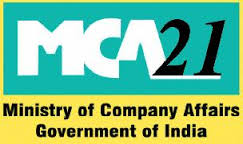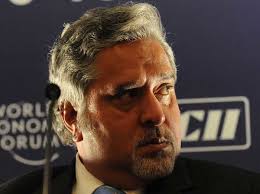 Storied asset manager KKR & Co has approached lenders like State Bank of India and ICICI Bank with a proposal to manage and create value from their loan portfolios to under-performing Indian companies. The American private equity investor will build a platform to deploy fairly long-term capital and operational expertise to turnaround troubled assets, with banks on board sharing the future upsides.
Storied asset manager KKR & Co has approached lenders like State Bank of India and ICICI Bank with a proposal to manage and create value from their loan portfolios to under-performing Indian companies. The American private equity investor will build a platform to deploy fairly long-term capital and operational expertise to turnaround troubled assets, with banks on board sharing the future upsides.
The proposal – discussed with a few public and private sector banks – is modelled on Pillarstone, a similar European platform created by KKR for stressed loans in markets like Greece and Italy . India’s central bank governor Raghuram Rajan has pushed lenders to purge bad loans and has urged global alternate asset managers to play a bigger role in easing India Inc’s bad loan crisis. But most Indian banks have opted for ‘fire sale’ of stressed assets to rival corporate houses rather than staying on course with a turnaround plan, though it would help these lenders unlock better value eventually.
“They are talking about jointly managing a portfolio of loans to these stressed companies as against acquiring a one-off asset. It involves sweating underlying assets to generate more value rather than writing down. This is also different than the prevailing approach by the under-capitalized asset reconstruction companies, which is more focused on asset-stripping,” said a source directly familiar with the matter. The discussions are ongoing but may not lead to any conclusive agreement with KKR, a second source cautioned.
When contacted, KKR declined to comment on the story. SBI and ICICI Bank too offered no comments. Traditionally, India’s public sector banks have stayed away from dealing with foreign investors in the stressed loan market.
Bulge-bracket global funds such as KKR, Brookfield Asset Management and Apollo Global management have looked at opportunities to acquire stressed assets put on the block by lenders. KKR was in contention to acquire Jaypee’s cement units, which was clinched by Aditya Birla-led UltraTech Cements for Rs 16,000 crore, mostly through a refinancing deal. KKR’s offer centred around acquiring 51% ownership (leaving the rest with lenders) and turning around operations under a new management team. The lenders would recoup a part of the loan upfront, while waiting for future upsides riding on a business rejig. The banks preferred a one-time deal offered by Birla’s UltraTech.
Brookfield’s acquisition of debt-laden Gammon’s road and power assets is one of the few recent instances where a global investor acquired assets of a stressed entity. “Indian lenders have opted for selling assets in distress rather than exploring ways to shore up value on troubled loans. Yesterday’s lenders have become today’s collectors. Hopefully, there will be a time when bankers will behave like bankers,” Anil Singhvi, a shareholder activist and co-founder of proxy advisory firm Institutional Investor Advisory Services (IIAS), said.
Last year, KKR along with Italian lenders UniCredit and Intesa Sanpaolo launched Pillarstone as a platform to help big corporate borrowers recover and grow. It later signed up with lenders such as Alpha Bank and Eurobank to expand the platform into Greece. Both Italian and Greek lenders have agreed to pool in about EUR 1 billion of loans each as part of the engagement with Pillarstone. KKR has said European Bank for Reconstruction and Development is also considering co-investing in the platform, which is planning to start operations into other European markets.
KKR has argued that Pillarstone is a “timely intervention” in European markets where hefty bad loans are hampering a broader economic recovery, a concern shared by policymakers in India as well. In recent weeks, the top 20 public sector banks have reported a cumulative loss of almost Rs 15,000 crore in the fourth quarter of the last fiscal. This was triggered by an unprecedented surge in provisioning for bad loans following the RBI’s asset quality review. The non-performing assets on their balance sheets is estimated at Rs 3 lakh crore.
“Nearly 15% of system assets are stressed and even if we optimistically assume that only a third of these stressed assets are going to be ultimately written off, that still means that nearly 30% the shareholders’ equity in the banking system is currently at serious risk,” Saurabh Mukherjea of Ambit Capital said in his latest research report. “The problem-facing public sector banks is more serious as 17% of their assets are stressed. It would imply that nearly 50% of the shareholders’ equity of PSBs will be written off by the end of FY18, requiring $30 billion (equivalent to nearly 1.5% of our GDP) in equity infusion. It is unlikely the government will find resources to recapitalize these ailing public sector banks,” Mukherjea added.




